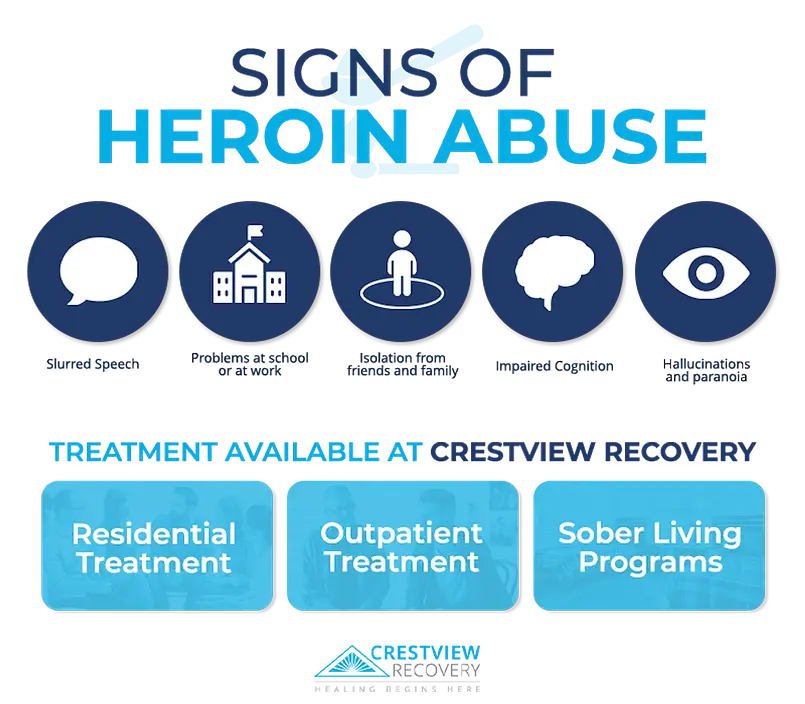
Healing Begins Here

HEROIN USERS
- Residential addiction treatment
- Medical detox
- Partial hospitalization program (PHP)
Heroin is one of the most addictive substances in the world. Many people start taking painkillers for pain, become addicted, and switch over to heroin. The makers of Oxycontin have begun using an abuse-deterrent formula, which has caused many users to change to heroin. This has resulted in a tripling of heroin deaths in the U.S. Heroin is processed from morphine, which comes from poppy plant seeds. It can come in a white or brown powder or a blackish tar. Heroin can be injected, snorted, and smoked.
HEROIN’S EFFECT ON THE BRAIN
Signs Of Heroin Use
The signs of heroin addiction include the following:
- Slurred speech
- Poor balance
- Exhaustion
- Cognitive impairment
- Absence of responsibility and accountability
- Inability to maintain employment
- Isolation from friends and family members
- Erratic or hostile behavior during withdrawal
- Theft
- Prostitution
- Infections
Addicts may have shortness of breath, weight loss, fatigue, needle marks, and constricted, or very small, pupils. Heroin addicts need more and more drugs to feel normal. Withdrawal from heroin is a terrible experience. Some signs of heroin withdrawal are cold sweats, severe cramps, nausea and vomiting, and sleeplessness. There can also be long-term effects of heroin addiction, including heart disease, infections, seizures, and liver disease.






















